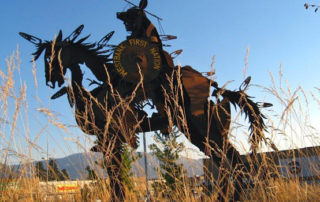-
FNTC: NEWS STORIES
An Indigenous infrastructure institution will help First Nations create sustainable, safe infrastructure to support the growing needs of their communities.
Healthy, vibrant communities need consistent access to energy, sanitation and clean water, as well as reliable transportation and communication. Governments invest in infrastructure to create lasting economic, social and environmental benefits for its citizens. In turn, citizens contribute to the growth, progress and innovation of their communities. Many First Nation communities are built with substandard, and in some cases, non-existent infrastructure. The lack of basic needs, at worst, puts the health and safety of the community at risk. At best, COMPLETE STORY
Defining a First Nations fiscal relationship with the Crown
Federal Minister of Justice: “We all need to continue to be strong proponents of change” The FNTC has long championed the notion that a new fiscal relationship for First Nations should be built on a foundation of clear government powers and authorities that are not financed by transfers, but are instead financed by a core of clear revenue authorities. On October 13, 2017, as part of regional engagements lead by a member of the AFN Chief’s Committee on Fiscal Relations, COMPLETE STORY
Westbank First Nation: Using property tax revenues to build a vibrant future
Recently Clearing the Path had the opportunity to meet with Ernest Jack, surveyor of taxes for Westbank First Nation (WFN) to discuss how property tax revenues are helping the First Nation achieve community visions. Westbank First Nation has a long taxation history under a local government services model used by many municipalities. Adapting this local government services model into a hybrid model proved a wise decision and WFN is now able to direct tax dollars to services and infrastructure that COMPLETE STORY

